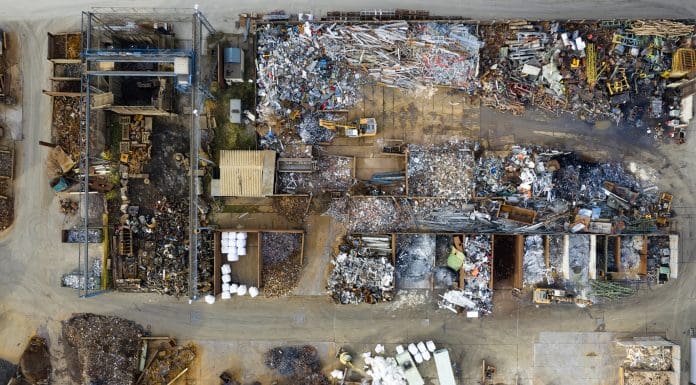Jamie Roberts, divisional director for construction, housebuilding & infrastructure at Reconomy, outlines the key principles of its new framework to improve strategies for waste management in construction
Effective waste management in construction plays a critical role in protecting the environment given the vast volumes of non-hazardous construction and demolition (C&D) waste that the sector produces.
DEFRA reports nearly 60m tonnes of C&D waste every year, comprising a wide range of materials such as brick, concrete and plasterboard.
While it is positive to see that around 92% is recovered, most materials end up being recycled into aggregate given the few opportunities to reuse materials.
Moreover, the figures also exclude excavation waste – a major component of C&D waste which is predominantly sent to landfill.
A new regulatory market for waste management in construction
It is within this context that we have brought forward a new framework to help the government, construction industry and all other relevant stakeholders adopt circularity within the industry.
It follows comments from Steve Reed, the new DEFRA secretary, that he is aiming to “create a roadmap to move Britain to a zero waste economy”.
Our framework aligns with this approach to create a consistent, business-friendly regulatory market to improve strategies for waste management strategies in construction.
Our eight principles consider the decentralised nature of construction projects, the long lifespan of infrastructure and the quantities of C&D materials used.
Here are the key recommendations outlined in the framework:
Create national minimum standards: Establish higher sustainability benchmarks for waste providers to ensure more responsible handling and disposal of C&D waste.
Develop consistent waste collection systems: A nationally uniform system for separating and collecting waste is vital to creating a more efficient waste management infrastructure.
Implement baseline data tracking: Continuous monitoring of waste figures will provide insights into progress and areas that need improvement, ensuring transparency and accountability.
Extend Producer Responsibility (EPR) schemes: Shift the responsibility for waste management from consumers to producers, incentivising the design and production of more sustainable materials.
Introduce mandatory returnable packaging: Eco-design standards should include packaging that can be returned and reused, minimising waste from the start.
Ringfence EPR funding: Allocate EPR funds to provide investments and subsidies for businesses, stimulating demand for sustainable waste management practices.
Digitise resource tracking: Implement a digital system to monitor resources in real-time, enhancing the efficiency and accuracy of waste management processes.
Establish an independent governing body: An autonomous organisation would oversee the implementation of these reforms, ensuring that the framework is enforced effectively.
Adopting these principles will not only help reduce the environmental impact of the construction sector but also stimulate economic growth.
The circular economy offers substantial financial benefits, with estimates suggesting that it could increase the value of the UK economy by £82bn and create up to 284,000 jobs in London alone by 2030.
Additionally, the framework’s emphasis on eliminating landfill and incineration as waste disposal methods aligns with the UK’s broader climate goals. It supports efforts to keep global warming below 2C, ensuring that businesses contribute to sustainable growth while reducing their carbon footprint.
Promoting circularity in construction
Reconomy’s regulatory framework lays out a path to addressing the urgent need for new initiatives to drive waste separation in the sector, end landfill and incineration as easy disposal methods, incentivise responsible waste management and keep resources in circulation.
It places businesses at the heart of the transition to a circular economy by ensuring reforms are structured, consistent and aligned with sustainable growth strategies, simplifying the system and stimulating investment.
In a sector where waste volumes are immense and environmental stakes are high, Reconomy’s framework provides a roadmap for the future – one where the construction industry can thrive while safeguarding the planet.
The post Developing a new framework for waste management in construction appeared first on Planning, Building & Construction Today.


